Srinagar: The famed apples of Kashmir have been sold for a dime. Livestock fattened for Eid remains unclaimed. Youngsters are being rounded up in night raids. Dark humour is abundant. And there is talk that the traditional divide between mainstream politicians and separatists may have collapsed.
A month since Jammu & Kashmir was stripped of its special status amid mass political detentions, curfew-like restrictions and a communication lockdown, the scars are showing.
This reporter traversed through his hometown of Pulwama and neighbouring areas of south Kashmir — from Shopian to Anantnag — to discover a people bruised and bleeding from what they see as an unprecedented assault on their personal liberties, their right to live.
There was anger, fear, rumour-mongering, confusion, and a massive leadership vacuum.
An apple a day…
Like much of India, Jammu & Kashmir has an agro-based economy, with more than 21 per cent of its GDP coming from agriculture and 27 per cent of its income from agriculture and allied sectors.
The time from May to November-December roughly constitutes the harvesting season for Kashmir’s famed apples, which hits its peak around mid-August.

Usually, around this time, thousands of people travel to the Kashmir Valley, including fruit traders, labourers, and truckers from across the country. However, the activity has been missing since Article 370 was scrapped 5 August, with the restrictions making business impossible, according to people involved in the trade.
An apple trader from Pricho in Pulwama offered a glimpse at things as they used to be.
“We would make politically correct as well as incorrect jokes, have good deals, make employment for a huge chunk of population directly or indirectly. All that’s gone now,” he said.
A fruit market/mandi nearby, which exported 111,605 metric tonnes of fruit before 2017-18 was up, stood completely empty.
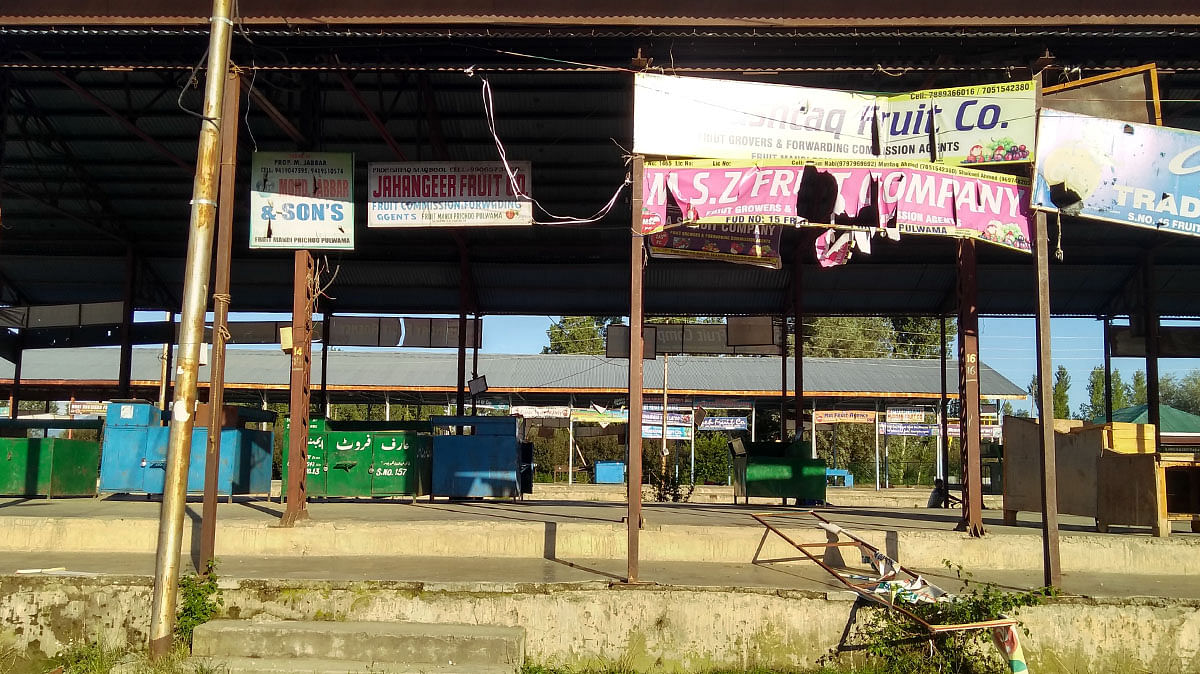
All that the grand shed of the market has are broken chairs and tables and hundreds of torn shop boards: Delhi-Pulwama Fruit Co, Zeenat Fruit Co, Bakir Fruit Co…
The activity was restricted to local kids turning up to try bicycle stunts in the open field.
“We have seen 2008, 2010, 2016 (times of unrest in the Valley) and, every time, we went ahead with our business, but this is a total ban/confinement,” a trucker from Pulwama said. “Hum toh chal bhi nahi sakte hain, business toh door ki baat hai (We cant even move, let alone carry out our business).”
This time, farmers aren’t readying their orchids for harvesting. Some of the harvest lies wasted, while a few farmers have sold theirs at extremely cheap rates.
The famous Bulgarian variant of Kashmiri apples, harvested in late July, has been sold for between Rs 100 and 150 a crate, where they usually go for Rs 500 to 600 a crate.
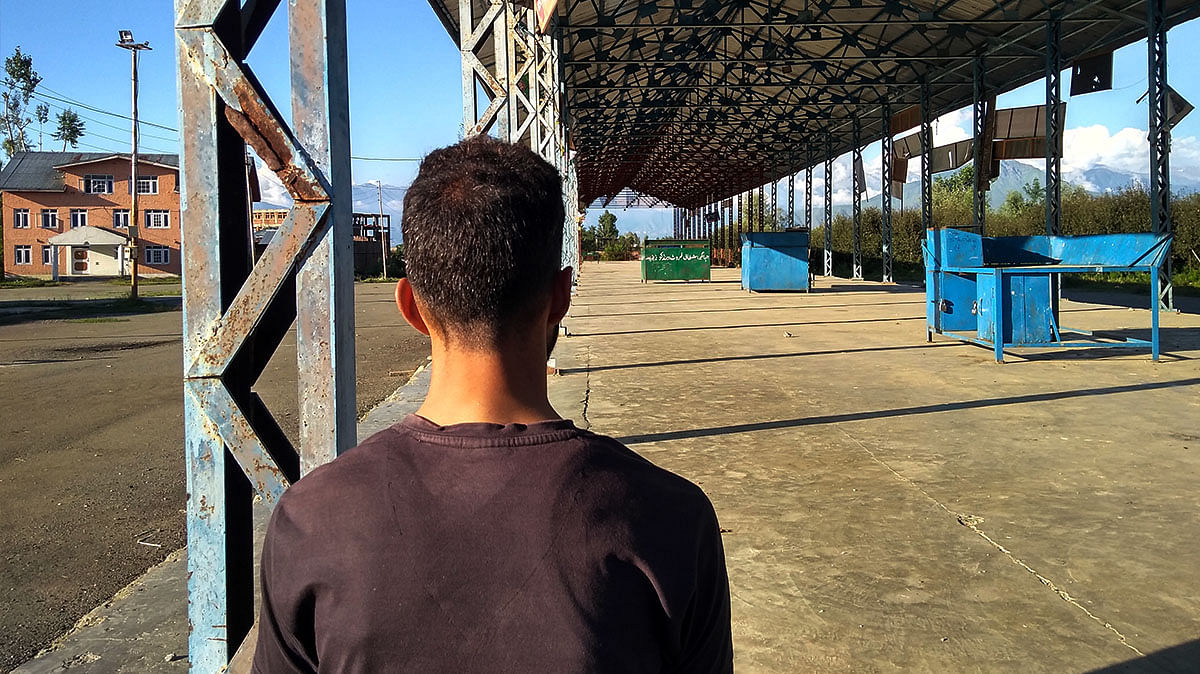
“Earlier, we would buy boxes, tents, tape and other packing material in advance,” a farmer from Gangoo, Pulwama, said. “This time we haven’t even thought about buying the stuff.”
Livestock has put on weight, now finds no takers
The majority of Kashmir’s population is Muslim — needless to say, Eid is a big deal.
The abrogation of Article 370 was announced exactly a week ahead of Eid-ul-Azha or Bakrid, which fell on 12 August this year. This Eid is marked by the ritual sacrifice of livestock, which is fattened ahead of the festival.
When Eid is around the corner, livestock farmers buy massive stocks to keep up with the heavy demand. However, this time, ThePrint learnt, the sacrifices were limited to only a few families, on account of the restrictions on movement.
This reporter met several farmers who now have overweight sheep but few customers.
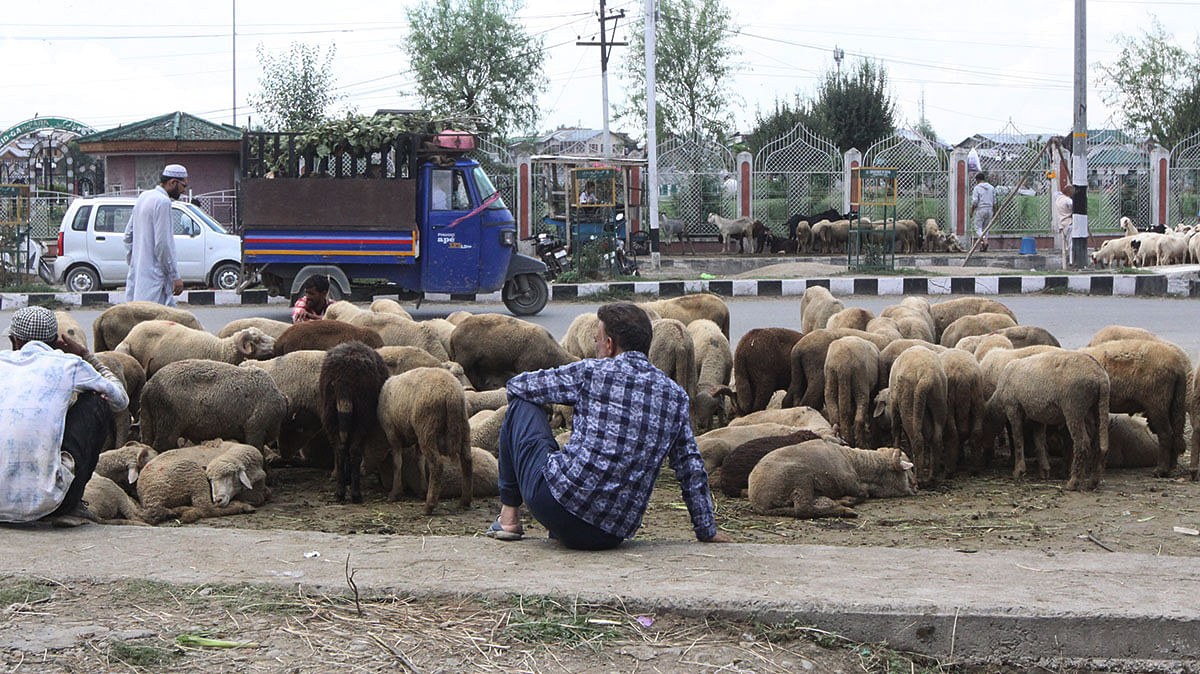
“This is perhaps the first time in my life that 60 per cent of my stock remained unsold during Eid,” Fayaz, a butcher from Pulwama, said. “I have to feed them now, which multiplies our burden each passing day.”
Local families who couldn’t perform the sacrifice shared a sentiment of deep regret.
“Eid-ul-Azha is all about celebrating like Ibrahim (Abraham), who offered Isma’il (Ishmail, his son) to god out of contentment, but look around us,” a woman said. “Can we be satisfied with our life, let alone celebrate?”
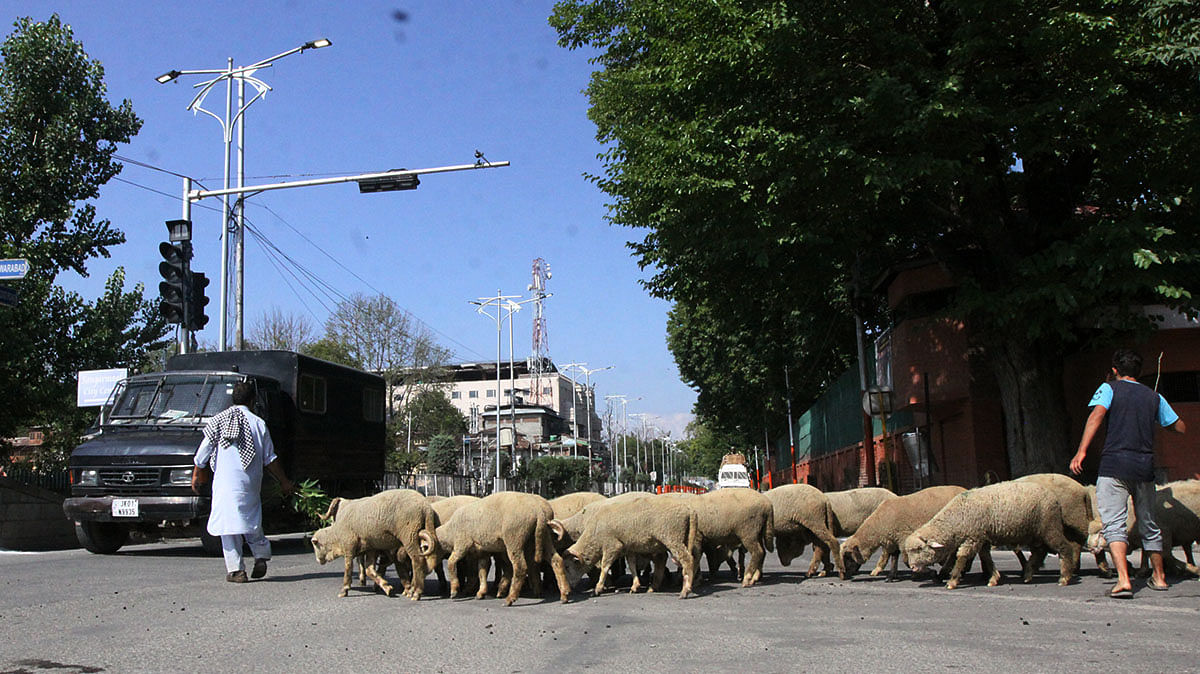
Also read: First large tourist group touches down in Kashmir — 60 elderly Sikhs with message of peace
Waiting for leaders
Bijbehara, the hometown of former chief minister and once-BJP-ally Mehbooba Mufti, is known for its bread and Mughal Gardens. Today, it is silent, bar a few vendors selling vegetables, medicines and other necessities on carts.
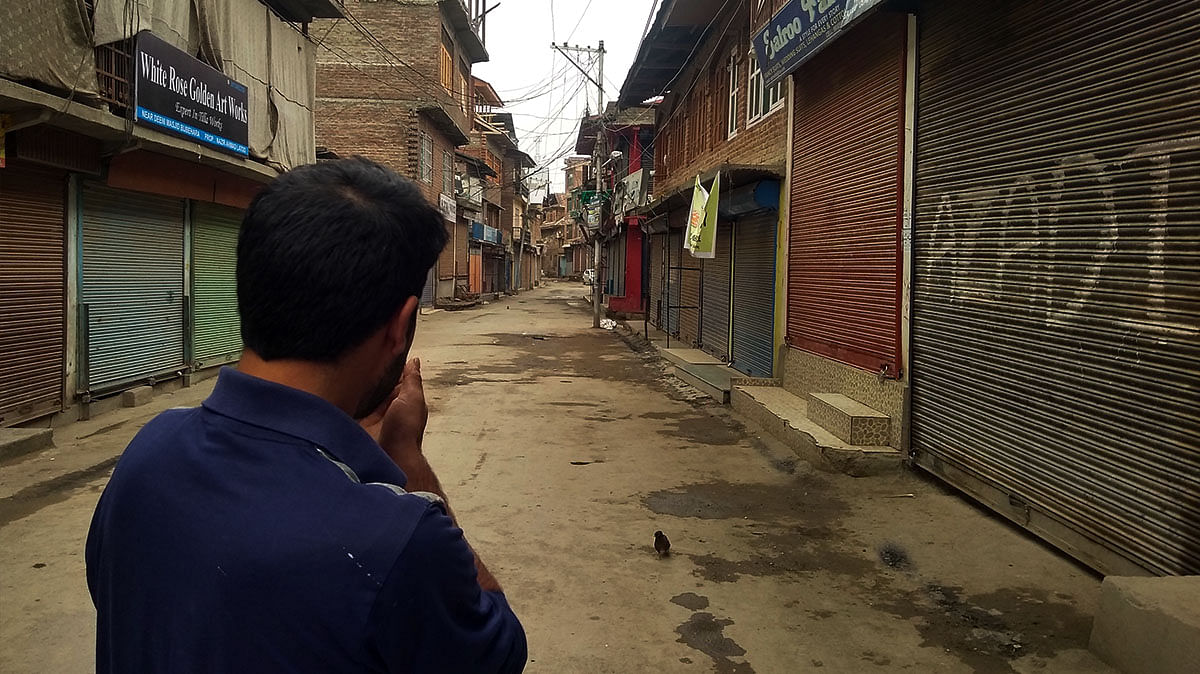
According to some local residents, Mehbooba still has some support here.
“The move (the abrogation of Article 370) has united both the so-called separatist as well as mainstream cadres,” a second-year college student said. “All we are waiting for is a voice.”
Another student added: “Earlier, people would only follow the calls of Hurriyat leaders. I feel if Mehbooba Mufti or Omar Abdullah comes out and asks us to mobilise, we will follow them for our rights.”
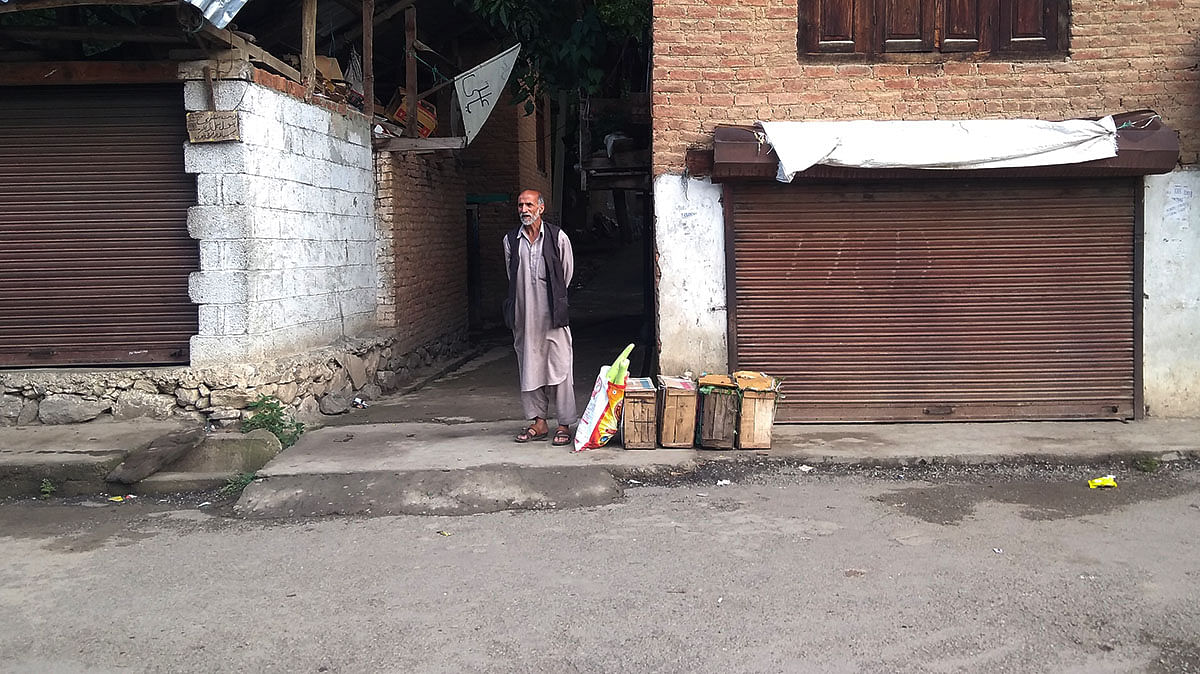
Some people in Anantnag hinted at a “conspiracy by both India and Pakistan to disenfranchise people of erstwhile Jammu & Kashmir”.
Woken up from sleep, detained
On 17 August, a Saturday, a 23-year-old man was detained by security forces. This reporter spoke to him the very next day.
“It was around 11.15 pm… All of us were sleeping, and I heard, ‘Army Army, come out’,” he recalled. The gates to their house were closed, he said, but police and Army personnel scaled the walls to gain entry.
“All of us, including my father, brother, mother and sister, were asked to show our identity cards, and I was taken,” he said. However, this youngster was not the real target, and was detained because he was mistaken for someone else.

He was let go after accompanying the forces to the real target’s house.
“Apparently, the target of this raid was a shopkeeper who had asked the local imam, or chief preacher of a mosque, to talk about the abrogation of Article 370,” he added. “By the time I was let go, my parents were petrified because of the raid.”
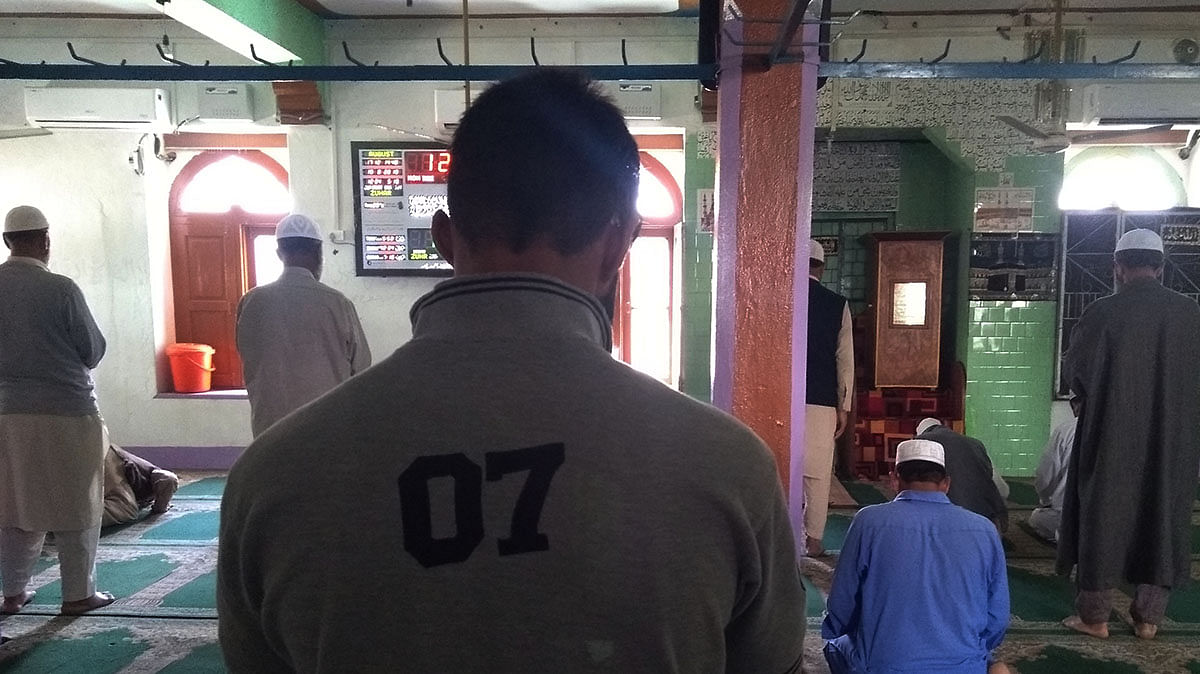
People in Pulwama joke that uttering words like “Kashmir”, “Article 370”, “Pakistan”, and “India” may “get us a bang in the evening”.
More than 4,000 people have reportedly been detained in the Valley since 5 August, including separatists, mainstream politicians, human rights activists and potential “law and order disturbing elements”, people who were given amnesty in 2016 by the erstwhile BJP-PDP government.
When restrictions are relaxed
At a shop with half-open shutters, a grocer in Sallar, Anantnag, was seen passing a bag of flour to his customers. “Make room for others,” he said to the crowd gathered outside. It was evening time.
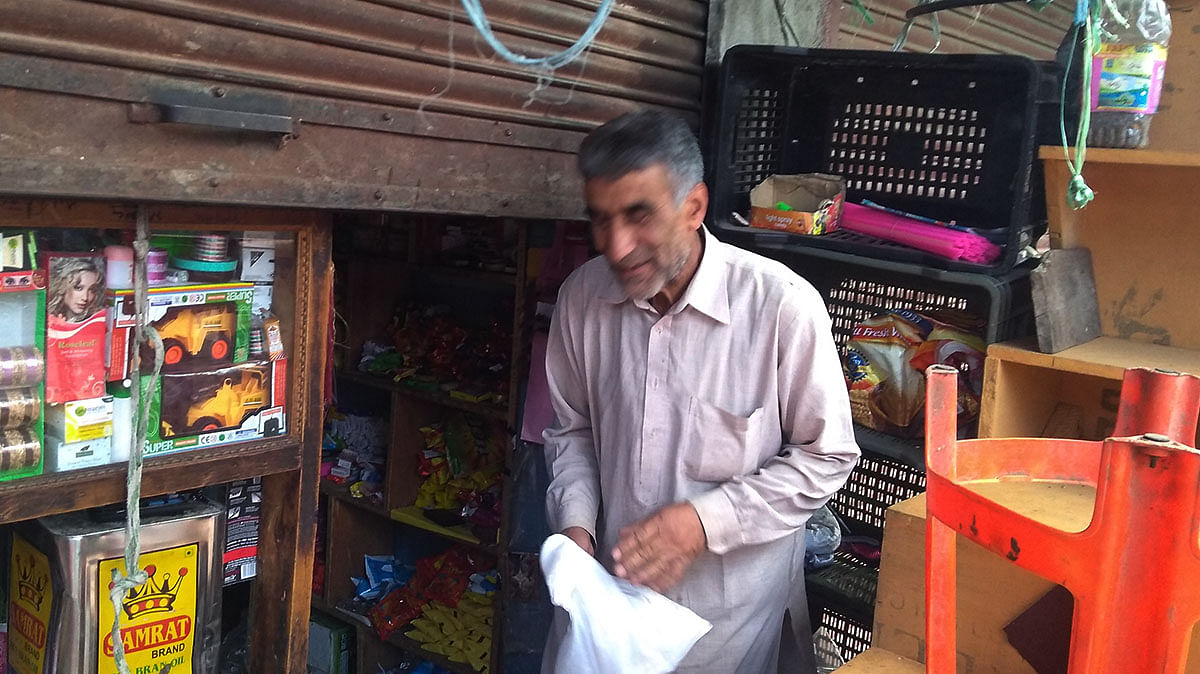
“I haven’t opened my grocery shop to make profits… It’s just to make sure no one sleeps hungry,” he added.
In the interiors of the town, this is also the time when youngsters gather to play cricket and share movies through the apps like Xender.
“I have watched 11 movies since 5 August because there is a lot of time to kill,” one of the youngsters said. “My friends and I watch Hollywood as well as Bollywood movies.”
Also read: Classrooms empty, Srinagar’s private schools bring lessons home via video CDs


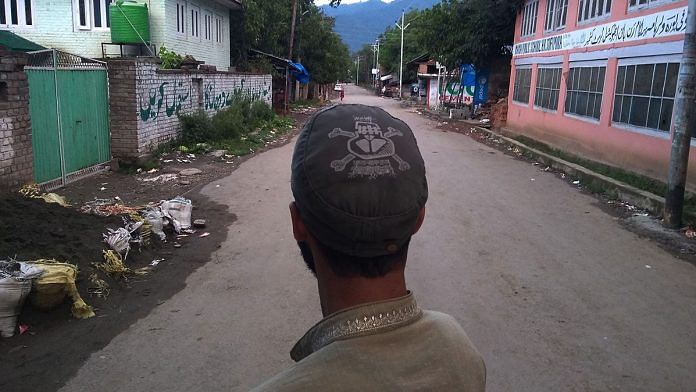

Viewed from the eyes of ordinary Kashmiris, it is difficult to believe that these changes will lead to a better future for them.